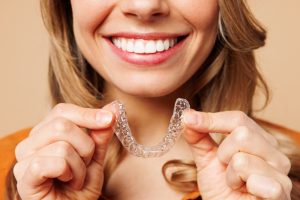The Parkcrest Dental Group knows how important it is that our patients are well equipped to take the best care of their own teeth, outside of regular dentist visits. With this in mind, how much thought do you put into the mouthwash you buy?
That is, if you even use mouthwash. Should you? Is the kind you’re using the right one for your teeth and gums? It can make a surprising amount of difference which mouthwash you regularly use, or whether you use any, and the Parkcrest Dental Group has some advice.
What’s It For?
When you’re shopping for mouthwash, you’ll notice that there’s a huge variety, all labeled for different, specific uses. Whitening, freshening, deep cleaning, soothing, mouthwash for sensitive teeth and much more.
So, what are you buying mouthwash for? If you’re just looking for an extra-clean feeling and fresh breath, you don’t need anything especially strong. Springing for an antiseptic or extra strength mouthwash will just cost extra, and burn when you use it.
Related Post: Parkcrest Dental Group: Do I Really Need Mouthwash?
Feel the Burn
If you are after something to add an extra kick to the cleaning properties of your toothpaste, then stronger mouthwash is available that will boost the protection from gum disease and plaque build-up.
These types of mouthwash normally have a higher alcohol content, which will typically give a tingling or burning sensation when you use it. It also means that it’s not suitable for kids. The advice from the Parkcrest Dental Group is that, more often than not, mouthwash this strong could be considered overkill.
For Sensitive Teeth
If you suffer from sensitive teeth, you might want to think about a mouthwash made just for that purpose. This type of mouthwash often contains mild, or low amounts of desensitizing ingredients, which make teeth less prone to the things that usually trigger pain.
Whether or not either mouthwash or toothpaste designed for sensitive teeth are really effective is up for debate – some studies have shown they work, while many people claim to have noticed no real difference.
The Parkcrest Dental Group recommends that, if you suffer from sensitive teeth, to get the advice of a dentist, since it’s often an indicator of a deeper dental issue.
Related Post: General Dentistry Advice: Why Are My Teeth Sensitive?
Alcohol-Free
The majority of mouthwash types made for adults contain alcohol to some degree, thanks to its powerful cleaning properties. The issue here is that alcohol tends to dry out your mouth, which needs to produce saliva as a natural mouthwash.
Overusing alcohol-based mouthwash can lead to problems regardless of its cleaning ability, so you may want to consider an alcohol-free mouthwash, which also has a milder flavor. However, you do sacrifice the antibacterial quality with this option.
Related Post: Parkcrest Dental Explains Why You Can’t Replace Brushing Your Teeth With Mouthwash
Parkcrest Dental Group and Mouthwash Options
At the Parkcrest Dental Group, we think that the best way to care for your own teeth is with brushing and flossing. Mouthwash is a good addition to a good dental and oral hygiene routine, and can help tackle bad breath, but is no substitute for a toothbrush and some floss.
If you have any specific questions about mouthwash, talk to your Parkcrest Dental Group professional about which combination of toothpaste and mouthwash is best for you.




